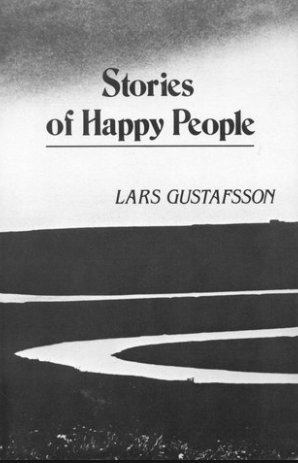 Spring is here, and so are the promises of the season: the famous flowers are in bloom, the strawberries are ripe for picking, the earth’s axis has started to tilt toward the sun, and—with its lackadaisical charm and balmy swagger—spring fever has set its sight on all of us. Oh, did we mention the kittens? But perhaps the best thing about the season is the arrival of May—Short Story Month—which is, as you might expect, American Short Fiction‘s favorite month of all.
Spring is here, and so are the promises of the season: the famous flowers are in bloom, the strawberries are ripe for picking, the earth’s axis has started to tilt toward the sun, and—with its lackadaisical charm and balmy swagger—spring fever has set its sight on all of us. Oh, did we mention the kittens? But perhaps the best thing about the season is the arrival of May—Short Story Month—which is, as you might expect, American Short Fiction‘s favorite month of all.
To celebrate we invited some truly wonderful writers to say a few words on their favorite short stories. Below you’ll find fourteen terrific recommendations, with links to the stories when we could find them available online. Margaret Atwood, in her collection Bluebeard’s Egg, writes, “In the spring, at the end of the day, you should smell like dirt.” We hope you sit down to read these stories, maybe after a bit of gardening, maybe while lying in the grass, as the moon is rising, the night jasmine beginning to bloom.
_____
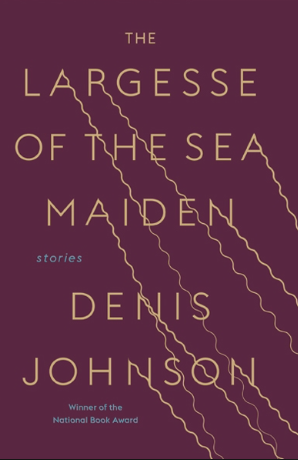 Don Lee on “The Largesse of the Sea Maiden” by Denis Johnson:
Don Lee on “The Largesse of the Sea Maiden” by Denis Johnson:
I’ve been obsessed with this story from the time it first appeared in The New Yorker to its recent incarnation as the title story of his posthumous collection. The story’s in first person, but it couldn’t be further from the voice or persona of Fuckhead, the narrator of Jesus’ Son. This narrator, Whit, is a middle-aged, upper-middle-class white man who lives in San Diego, works in advertising, and wears tasseled loafers, for God’s sake. It’s possible he might even be a Republican. But Johnson somehow makes us care about Whit, about his existential midlife crisis: “I was assailed by such sadness at the velocity of life—the distance I’ve traveled from my own youth, the persistence of the old regrets, the new regrets, the ability of failure to freshen itself in novel forms.” This is ultimately a story about humanity, which, I suppose, makes it, ultimately and inimitably, a Denis Johnson story.
Lauren Groff on “Greatness Strikes Where it Pleases” by Lars Gustaffson:
My favorite story is Lars Gustafsson’s devastating, emotionally reserved “Greatness Strikes Where it Pleases,” which makes me weep every time I read it. It is a quick and bittersweet story, sketching in the unremarkable life of a man with great intellectual deficits, and it is told simply and filled with sharp and stunning images. There are many gorgeous stories in the world, but joy is almost never the subject of them; how moving to find it in the poignant and lonely and wordless central figure of this story.
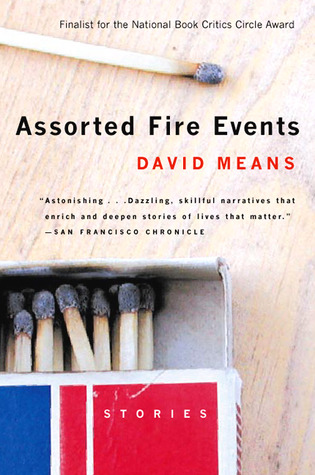 Andrew Malan Milward on “Railroad Incident, August 1995” by David Means:
Andrew Malan Milward on “Railroad Incident, August 1995” by David Means:
You all got a lot of nerve asking a storywriter for an all-time favorite story. With the understanding that this is a somewhat inherently problematic proposition for me, I have decided to turn to my favorite living short-story writer. For my money, Means is pound for pound the best there is. His stories are often violent and beautiful at the same time, and perhaps most interesting to me is that they often defy standard Freytagian narrative structure and logic. His stories don’t have arcs; they spiral and jolt and magically beam-you-up somewhere that surprises and yet feels absolutely right. Narrowing it down to David Means was tough enough, but picking a favorite of his stories is brutal. And yet, I’ve got to go with this one, which was the first story of his I ever read. It opens his amazing collection Assorted Fire Events, and it features all that I mentioned: the violence and beauty, the surprising shifts in point of view that by the end leave you floored and, if you’re like me, envious.
 Amber Sparks on “Congress” by Joy Williams:
Amber Sparks on “Congress” by Joy Williams:
Late in Joy Williams’ magnificently weird story “Congress,” a taxidermist asks the protagonist to take over his work for him when he retires. When she at first demurs, he tells her she doesn’t have to stuff anything; she just has to answer a lot of questions. “I don’t know anything about questions,” she says. He tells her “The only thing you have to know is you can answer them any way you want.” That exchange so perfectly describes all of Williams’ fiction, but especially this, my favorite of all her short stories. The protagonist has more questions than answers: about the nature of love, the way to connect, the relationship between humans and animals, and the profound alienation of a person in the modern world. Williams answers them with a very strange road trip and a deer leg lamp with a preference for Kierkegaard, and the resulting tale is odd, droll, and quite unexpectedly moving.
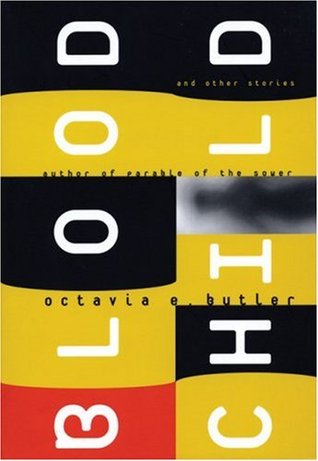 Mary Helen Specht on “Speech Sounds” by Octavia Butler:
Mary Helen Specht on “Speech Sounds” by Octavia Butler:
This perfect short story is set in a future dystopian Los Angeles on one single afternoon. A virus has caused most humans to lose the capacity to speak or read language, and Rye, the protagonist, is attempting to cross the city to find what remains of her family. The story is a master class in how to use every action, every description, every memory to build character and move the story forward. It’s also a gripping read.
 Manuel Gonzales on “The Cowboy Tango” by Maggie Shipstead:
Manuel Gonzales on “The Cowboy Tango” by Maggie Shipstead:
One of my favorite short stories was written and published about eleven years ago, but I only discovered it less than a year ago, in September, 2017, when its author, Maggie Shipstead, read from it while visiting Lexington, Kentucky, as part of the lineup for the Kentucky Women Writers Conference. She read alongside Claire Vaye Watkins, who read from her short story, also one of my recent favorites, “I Love You, but I’ve Chosen Darkness,” (which you can also read, if you’ve a mind and why not since it’s short story month, here). Shipstead read only half of her story, and so, immediately after, I was forced to seek it out. I read the rest of it in a fast gulp and then, its hold on me so strong, I assigned it, last minute, to one of the classes I taught that semester. For a long time, I’ve found myself drawn to stories that contain within them the scope and emotional weight of a novel. I also find myself drawn to stories that manage quiet emotions and quiet moments and human longing in a way I find that, in my own fiction, I cannot. Deborah Eisenberg’s “Mermaids,” for instance, or Jennifer Egan’s “Safari,” each satisfies these desires in me as a reader and a writer, as did the story, “The Cowboy Tango.” Shipstead creates a complex and richly imagined world–Glen Otterbausch’s dude ranch–that spans decades of time, all in a matter of a few thousand words, and it’s stunning to read, funny and sad and wistful and harsh. What’s more, it’s a gorgeous story that obtains its beauty and weight without gimmicks or tricks, through the simple exploration of emotion and action, and since reading it, I can’t help but return to it, again and again.
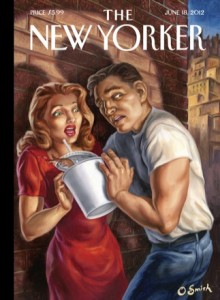 Jennifer duBois on “The Golden Vanity” by Ben Lerner:
Jennifer duBois on “The Golden Vanity” by Ben Lerner:
A neurotic, parodically self-aware author waits to discuss his archives with a librarian. A year earlier, in advance of oral surgery, he frets over the metaphysical implications of “twilight sedation” with his wryly patient friend, Liza. The rest of the story, more or less, is what happens in between. “The Golden Vanity” is a Nabokovian chronological puzzle, and probably just a bit too clever for its own good. But if you think about it long and hard enough, it will break your heart.
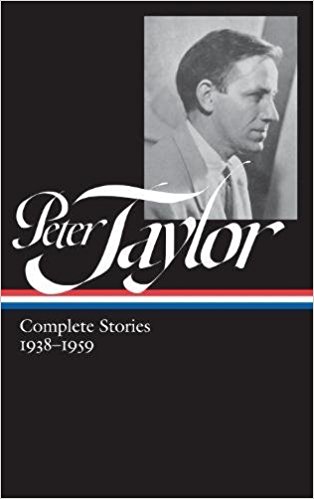 Benjamin Markovits on “A Sentimental Journey” by Peter Taylor:
Benjamin Markovits on “A Sentimental Journey” by Peter Taylor:
Probably my favorite short story is “A Sentimental Journey,” by Peter Taylor—I’ve also seen it called “1939.” It’s about a couple of Creative Writing students from Kenyon College who drive down to New York over Thanksgiving weekend to meet their fiancees. Everything goes quietly wrong, including their car, which breaks down, and when they catch the train back afterward both have them have been dumped, they’re returning to their old lives, it’s as if nothing has changed, but the narrator has seen something, just how young he is really, and how much is still going to happen to him. It’s beautifully done, Taylor like a good southerner sort of circles around his story, adding details and layers with each digression, and part of the point is to paint a picture of himself as a writer—someone who has come to terms with his subsequent failures, too.
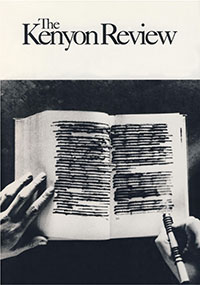 Melinda Moustakis on “The Quiet Thing” by Che Yeun:
Melinda Moustakis on “The Quiet Thing” by Che Yeun:
Set in a “ghost neighborhood” in Seoul, this unforgettable story details the life of a college student who’s wasted her tuition and student loans by racking up debt and is on the run from a collection agent who is somehow able to send threatening messages by leaving menacing objects in her bedroom that she finds in the morning. The only tenderness in this world seems to be found in her relationship with Nara, a woman who subjects herself to many cosmetic surgeries, and is in a volatile relationship with her boss/boyfriend named Ricky who bankrolls these procedures. This story is a strange wonder and balances many elements: a love triangle, a dystopian but believable consumerist future, and sharp sparse prose with beautiful and gory descriptions. At its heart it is a tale of two women trying to do everything they can to survive.
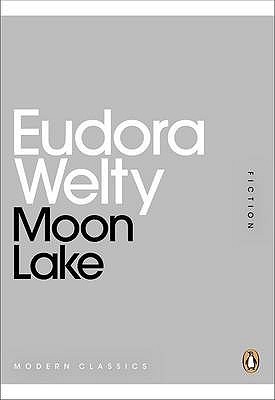 Nina McConigley on “Moon Lake” by Eudora Welty:
Nina McConigley on “Moon Lake” by Eudora Welty:
This is not the story readers think of when they think of Welty. It’s an odd story. It follows a group of girls at a summer camp. The campers are in two groups–the paying girls from Morgana, Mississippi and the charity campers from an orphan home. The two groups dress differently, and act differently, as the orphans cannot swim–they stand in the water while the city girls swim all around them. I love this story because I think summer camp is the ideal place to put a group of girls who are not quite adults but in the limbo between childhood and adulthood (ZZ Packer’s Brownies is another favorite camp story). Adults in the story fall away, and we see the painful dynamics of young women, left to their own devices, on the brink of their sexuality. This leads to almost tragic results. Welty’s language and the weirdness of this story make me return to it again and again. The main character of Easter, an orphan, is a wonder. In this story, Welty delves into issues such as racism, class, and what it means to be a woman with a deft and poetic touch.
 Laura van den Berg on “The Country” by Joy Williams:
Laura van den Berg on “The Country” by Joy Williams:
One of my reigning short story favorites is “The Country” by Joy Williams (the story can be found among the new stories in The Visiting Privilege). Williams has written that “A writer starts out, I think, wanting to be a transfiguring agent, and ends up usually just making contact, contact with other human beings. This, unsurprisingly, is not enough.” This could, in some ways, serve as a plot summary for the story, although I would argue that the story does succeed in becoming a transfiguring agent. What I mean is that it is the kind of story that changes you. “The Country” is caustically hilarious and rigorous in its vision of what it means to be alive right now. I love it and am frightened by it and also I’m not entirely sure what happens in the end. Let’s all read “The Country” together and then talk about that last paragraph, OK?
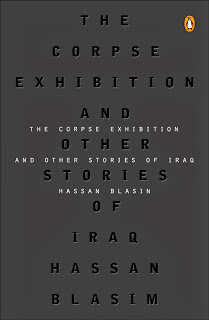 Akil Kumarasamy on “A Thousand and One Knives” by Hassan Blasim:
Akil Kumarasamy on “A Thousand and One Knives” by Hassan Blasim:
Blasim writes about the realities of war with such imaginative and staggering grace. Here the ability to disappear knives becomes a metaphor for existence in Iraq and a survival trick. I am astounded in the clarity of Blasim’s vision, how his fiction penetrates the horrors of war with the fantastical pulsing of dreams and blood. How else to speak of the absurdity of war but to cut through and go beyond? The story is so full of life it will make you weep.
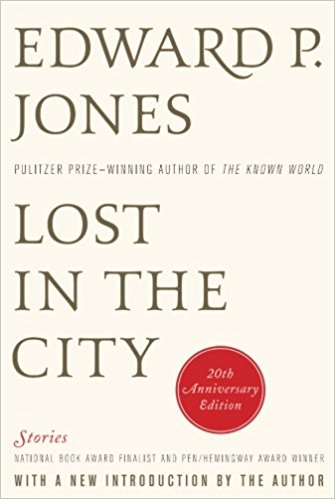 Alexander Lumans on “Young Lions” by Edward P. Jones:
Alexander Lumans on “Young Lions” by Edward P. Jones:
What has long stuck with me is the story’s final scene where Caesar is assaulting Carol, his girlfriend, in a public park. He slaps her repeatedly, splits her lip and makes her nose bleed, and even threatens her with his Beretta. The way the violence is rendered in both image and language, this more-than-flinch-worthy moment becomes one of the most “I can’t watch this, but I must watch this” scenes I have ever encountered. The physicality is cold, the motivation is dangerous, and the escalation is terrifying. At one point, Jones writes, “And had he shot her, in the face or through the heart, she would not have been surprised at that either.” Every time I read this story, Jones makes me truly realize that with a deep attention to detail and voice, you can make your characters capable of absolutely anything.
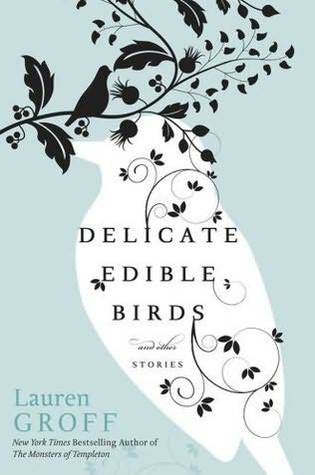 Caitlin Horrocks on “L. DeBard and Aliette” by Lauren Groff:
Caitlin Horrocks on “L. DeBard and Aliette” by Lauren Groff:
I could never pick a single favorite story, but a story that’s stuck with me since I originally read it in the 2006 Summer Fiction Issue of the Atlantic is Lauren Groff’s “L. DeBard and Aliette.”
“He is at first a distant wave, the wake-wedge of a loon as it surfaces,” the story opens. I savor the “w”s of wave and wake and wedge. “In the mid-distance the swimmer splits into parts, smoothly angled arms and a matte black head. Twenty feet from the dock he dips below the water and comes up a moment later at the ladder, blowing like a whale.”
“Splits into parts,” “matte black head,” “blowing like a whale”: the inventive precision of the language gives potentially dull subjects like weather, or a distant, anonymous swimmer, the sheen, not quite of beauty, but of something more intriguing. I’m hooked, even though I’m a terrible swimmer, even though nearly nothing has actually happened yet in this story: no conflict, no violence, no falling in love.
Scratch that, someone has fallen in love: “She sees him step onto the dock: the pronounced ribs heaving, the puckered nipples, the moustache limp with seawater. She feels herself flush, and, trembling, smiles.” The “pronounced ribs” suggest our hero’s hunger and poverty. His nipples, moustache, the flush, suggest both his attractiveness and our heroine’s awareness that she should not be noticing such things. She’s already fallen in love with him, through his book of poems. Soon enough he’ll fall in love with her, too. Her blush could perhaps belong to anyone, in any era, but we soon learn it’s the ladylike blush of a girl from another century.
“It is March 1918, and hundreds of dead jellyfish litter the beach. The morning newspapers include a story, buried under the accounts of battles at the Western Front, about a mysterious illness striking down hale soldiers in Kansas.” By this third paragraph, the twin tragedies of the story—the doomed romance, and the deadly flu pandemic—are slyly introduced. Either could have been presented with flashing lights, LOOK HERE warnings. The date could have been indicated through overly-precise descriptions of antique automobiles or bathing costumes. Instead we get a simple statement, “It is March 1918,” and the author’s willingness to let the reader begin to understand for ourselves just what that means.
Groff also lets the reader come to understand in our own time, in our own way, that “L. DeBard and Aliette,” is a retelling of the historical romance of Heloise and Abelard. At whatever point in the story readers piece this together, or if they never do (or if I’ve just spoiled the surprise for you), Groff’s story is undiminished—it will still break your heart.
